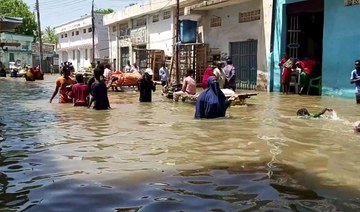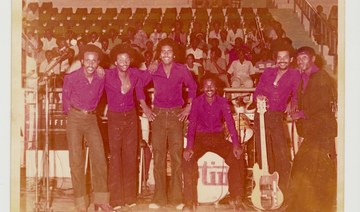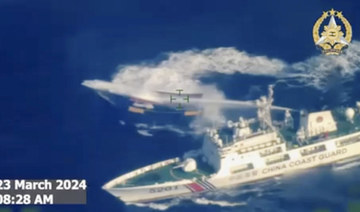MOGADISHU: Somalia’s President Mohamed Abdullahi Mohamed has appointed a new prime minister hours after brokering an agreement with regional leaders for elections next year that abandons a promised one-person, one-vote model.
Mohamed’s office announced late Thursday the appointment of Mohamed Hussein Roble, a Swedish-trained civil engineer and political neophyte, and “wished him to take duties and tasks ahead with diligence.”
He fills a vacancy left when former Premier Hassan Ali Khaire was removed by parliament in July for failing to pave the way for fully democratic elections due before February 2021.
The foreign-backed government in Mogadishu has been in drawn-out negotiations with Somalia’s federal states over how to proceed with parliamentary and presidential elections.
However, the process has been held up by political infighting between the president — better known by his nickname Farmajo — and the country’s regional leaders.
Somalia had set itself the goal of holding its first fully democratic, one-man, one-vote election since 1969 — as opposed to a complex system in which special delegates pick lawmakers who then vote for the president.
But an agreement reached between the president, five regional leaders and the mayor of Mogadishu has conceded that such a vote would be impossible within the time frame remaining before Somalia’s parliament expires in November, and Farmajo’s term ends in February.
In an official communique, the negotiators said delegates from Somalia’s myriad clans would elect the 275 MPs of the lower house, which in turn chooses the president.
SPEEDREAD
The foreign-backed government in Mogadishu has been in drawn-out negotiations with Somalia’s federal states over how to proceed with parliamentary and presidential elections.
While the process mirrors the last election held in 2017, it will go a bit further in terms of inclusivity, with 27,775 delegates voting — almost twice as many as last time.
No timeline was given, and it remains unclear what role the country’s independent election commission will play, with the federal and state governments to appoint their own agencies to oversee their respective polls.
The plan still needs to be approved by Somalia’s parliament.
The UN had described the pursuit of one-person, one-vote elections as a “historic milestone” on Somalia’s path to full democratization and peace after decades of war and violent instability in the Horn of Africa nation.
But observers had warned that such a goal was looking increasingly unlikely due to tensions with the states, technical aspects such as voter registration, and security challenges posed by the Al-Shabab militant group.
The fragile central government, chaired by Farmajo, controls only a part of Somali territory and relies on an international peacekeeping force to confront a violent insurgency from Al-Shabab in the countryside.
Mogadishu had been criticized by observers for engaging in political feuds with federal states to gain control in the election process, rather than focusing on the fight against the militants.
























